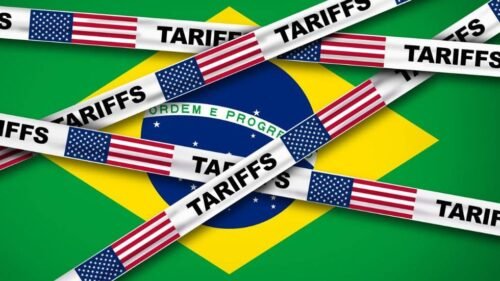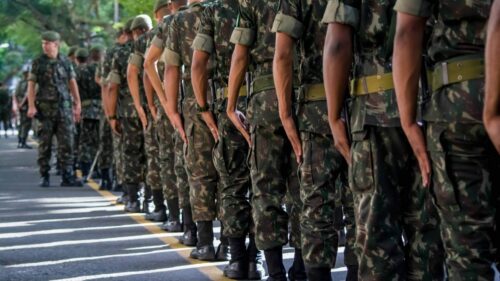In a historic milestone for Brazilian democracy, the Supreme Federal Court (STF) convicted former President Jair Bolsonaro and seven other defendants for participating in a coup plot that sought to subvert the results of the 2022 elections — when Luiz Inácio Lula da Silva defeated him — and remain in power. The trial, concluded on September 11, by the First Panel of the Court, established prison sentences and ineligibility for the eight individuals involved.
Brazil witnessed for the first time the trial of the architects of a plan to destabilize institutions and the democratic rule of law. The seriousness of the charges and the importance of the verdict for the country’s future reflect the unprecedented nature of the case.
Bolsonaro is the tenth head of state to be punished for this crime in the world, and the first in Brazil’s history. The newspaper O Globo conducted a survey of leaders convicted since 1946 and identified a total of 186 convictions of 128 heads of government in 69 countries. Most of these convictions, however, were for corruption crimes, not attempted coups.
Brazil has experienced at least 15 coups or coup attempts since the end of the monarchy in 1889. The most infamous and damaging was the seizure of power by force in 1964, when a military uprising overthrew President João Goulart, ushering in a 21-year dictatorship.
Jair Bolsonaro defended this stance throughout his political career, since the 1980s, and refused to call the regime that was imposed a dictatorship, classifying it as a period of “order and progress” (which is the motto written on the Brazilian national flag).
When he voted in favor of the impeachment of then-President Dilma Rousseff in 2016, he dedicated his vote to Colonel Carlos Alberto Brilhante Ustra, “the terror of Dilma Rousseff,” in his words — Ustra had tortured the president during the dictatorial regime.
The decision and the sentences
The final decision was four votes to one. Justices Alexandre de Moraes (rapporteur), Flávio Dino, Cármen Lúcia and Cristiano Zanin voted for conviction, while Luiz Fux voted for acquittal. The sentences, based on evidence such as notes, live videos, use of the Brazilian Intelligence Agency (ABIN) for espionage and draft coup documents, were established as follows:
Jair Bolsonaro: Sentenced to 27 years and three months in prison, to be served in a closed regime, in addition to a fine of more than 447,000 Brazilian Real (about $80,000). The former president and the other defendants were sentenced to ineligibility for eight years, added to the eight years already determined by the Superior Electoral Court (TSE) in 2023. The reporting minister, de Moraes, pointed to Bolsonaro as the leader of an armed criminal organization that sought the violent abolition of the democratic rule of law.
Other defendants: Walter Braga Netto (general and former minister), Almir Garnier (admiral and former Navy commander), Anderson Torres (former Minister of Justice), Augusto Heleno (general and former Minister of Institutional Security), Paulo Sérgio Nogueira (general and former Minister of Defense) and Alexandre Ramagem (federal deputy and former director of Abin) were also convicted, with prison sentences ranging from 16 to 26 years. Mauro Cid, Bolsonaro’s former aide-de-camp, received a two-year open prison sentence, benefiting from a plea bargain.
The defendants were convicted of various crimes related to the attempted coup, including armed criminal organization, violent abolition of the democratic rule of law, aggravated damage to federal property and deterioration of listed heritage sites.
Context: The chronology of the alleged coup
What led Brazil to this decisive point was a series of events that, according to investigations by the Federal Police (PF) and allegations by the Attorney General’s Office (PGR), form the basis of the indictment.
According to the complaint, the plot began in March 2021, when the STF annulled former President Lula’s convictions, and his release from prison made him eligible to run for office. From then on, Jair Bolsonaro’s support group allegedly began a campaign to question the electoral system and delegitimize the possible victory of an opponent. In July 2022, the PGR and the PF indicated that a criminal organization had been structured with plans to interfere in the elections.
After Bolsonaro’s defeat by Lula in the presidential election in October 2022, the movement allegedly became more radical, with supporters camping in front of Army barracks calling for military intervention. Investigations revealed the existence of a coup plan, the “Green and Yellow Dagger,” which was reportedly presented to military commanders in December 2022 but was rejected by the Army and Air Force leadership. The complaint points to the existence of a “coup decree,” which provided for the annulment of the elections and the arrest of Supreme Court ministers.
The crisis reached its peak on January 8, 2023, with the invasion and destruction of the headquarters of the Three Powers in Brasília, in acts that investigations by the PF and the Joint Congressional Investigating Committee (CPMI) concluded were part of a planned and financed mobilization. In July 2023, the investigation also found a draft decree on Law and Order at the home of former Justice Minister Anderson Torres, which would confirm plans to arrest Minister Alexandre de Moraes and annul the election.
The culmination of this investigation occurred in November 2024, when the PF indicted Bolsonaro and 36 other individuals. The PGR formalized the complaint to the STF in February 2025, and the court accepted the request in March 2025, turning the accused into defendants.
Trump on the scene: the international dimension
The trial took on a complex international dimension. The lawsuit is a domestic matter, but the shadow of US President Donald Trump looms over the case with profound political and diplomatic consequences.
According to analysts, the relationship between Brazil and the US is experiencing a deepening crisis, with Washington imposing tariffs on Brazilian products and sanctions against members of the Supreme Court. These measures are seen as a direct reaction by the Trump administration in support of Bolsonaro.
The strategy of rapprochement with the US was articulated by federal deputy Eduardo Bolsonaro, son of the former president, who traveled to the country to ask for international support and seek “fair punishment” for de Moraes and the Federal Police.
Trump’s support for Bolsonaro was not limited to statements. The American president spoke out against the legal proceedings, calling them a “witch hunt,” and imposed 50% tariffs on Brazilian products. The US government then announced sanctions against de Moraes, revoking his visa and those of his family members, and opened a trade investigation against Brazil, accusing the judiciary of “censoring” American technology companies. Experts believe that these acts of intimidation and bullying reflect Trump’s personal affinity with Bolsonaro, as both have been accused of attempting to overturn election results and incite their supporters.
The political and diplomatic consequences of this interference are notable. US pressure has worn down Brazilian public opinion and, according to polls, has reinforced the perception that Bolsonaro participated in the coup plot. However, this interference does not seem to have changed the opinion of his most loyal supporters. In the political arena, the growth of negative views about Bolsonaro had led parties to rethink the costs of a strong defense of the former president.
The protagonists and the next steps
The progress of the process reflects the actions of two key figures: Alexandre de Moraes and Luiz Inácio Lula da Silva.
As rapporteur for the investigations, de Moraes has become the main face of the judicial response. His actions have been marked by conducting investigations, authorizing searches and seizures, and now, by reporting on the trial, with a vote that points out that the defendants not only planned but also initiated concrete actions to discredit democracy.
For his part, Lula has taken on the role of defender of the rule of law, vehemently condemning the acts of January 8 and defending the work of the PF and the judiciary. His stance has reinforced the autonomy of institutions and the country’s democratic legitimacy in the eyes of the international community.
The defendants’ defense can still appeal the decision, which prevents immediate imprisonment. Bolsonaro is currently under provisional house arrest, and the final decision on where he will serve his sentence will be made after all appeals have been exhausted. The loss of the convicted men’s military rank will be reviewed by the Superior Military Court (STM) after the final judgment.
This trial was not just an isolated case. It served as a global reminder that democracy, even in consolidated nations, is not immune to internal (and external) threats. The way Brazil dealt with this plot determined the strength of its institutions and its reputation as a nation that, above all, submits to the law and the Constitution.
[Kaitlyn Diana edited this piece.]
The views expressed in this article are the author’s own and do not necessarily reflect Fair Observer’s editorial policy.
Support Fair Observer
We rely on your support for our independence, diversity and quality.
For more than 10 years, Fair Observer has been free, fair and independent. No billionaire owns us, no advertisers control us. We are a reader-supported nonprofit. Unlike many other publications, we keep our content free for readers regardless of where they live or whether they can afford to pay. We have no paywalls and no ads.
In the post-truth era of fake news, echo chambers and filter bubbles, we publish a plurality of perspectives from around the world. Anyone can publish with us, but everyone goes through a rigorous editorial process. So, you get fact-checked, well-reasoned content instead of noise.
We publish 3,000+ voices from 90+ countries. We also conduct education and training programs
on subjects ranging from digital media and journalism to writing and critical thinking. This
doesn’t come cheap. Servers, editors, trainers and web developers cost
money.
Please consider supporting us on a regular basis as a recurring donor or a
sustaining member.
Will you support FO’s journalism?
We rely on your support for our independence, diversity and quality.









Comment